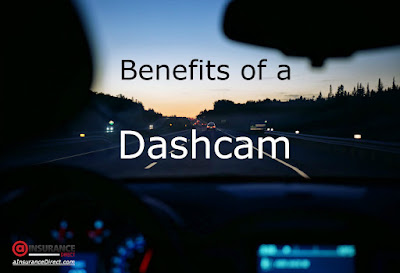Get a dashcam car insurance discount
Are you looking to get a dashcam insurance discount? At the moment, there are no U.S. car insurance companies offering a dashcam car insurance discount.What is dashcam?
A dashcam, dashboard camera, car DVR (digital video recorder), driving recorder, car black box or event data recorder (EDR) is an onboard video camera that records your everyday journey, which is useful if you get into an accident as well. The main function of a dash cam is to record your drive. Whenever your vehicle is turned on, the video registrator recorder will automatically turn on and begin recording. When you turn off your vehicle, it will automatically stop recording.Why drivers with dash cams deserve car insurance discounts?
Your dash cam video can be used in determining who was at fault in an accident claim and potentially help expedite your claim. You can use the video as evidence. Drivers whose vehicles have a dashcam can get discount for car insurance. Also, you can review your driving videos to become a better driver. A "good driver discount" is one of the best car insurance discounts to have since it can be up to 30% of your insurance. However, to this date, most insurance companies in the United States have never provided an insurance discount for a dash-cam.False insurance claims.
False insurance claims are a huge problem in the U.S., and you don’t want to find yourself on the losing end. U.S. auto insurance companies are losing an average of $23 billion each year to fraud. The state of Florida is claimed as one of the highest auto insurance fraud. The insurers increase the cost of car insurance for all policyholders, which is estimated at 15–35% of the average driver's auto insurance premium. If a claim is filed where both drivers state that they are innocent, then each driver will have to pay for their own expenses.Are dashboard cameras expensive?
Consider buying a front and rear camera, giving you full protection around your car. Although the initial investment cost is higher, it could save you thousands of dollars in court costs, wrongfully issued tickets and car insurance rates. Car driving recorder can cost anywhere from $25 to $450. So make sure your camera provides high-quality video that can capture faces and license plate numbers in the case of an accident.Dashboard features.
One of the most important feature that makes dash cams unique is the loop recording. Loop recording allows for continuous recording regardless of the memory's capacity. Dash cameras are programmed to record non-stop on a loop by overwriting the earliest video when the memory has reached its capacity. This allows the driver to never have to worry about removing the device and cleaning out the memory.Extra features are g-sensor, accelerometer, speed, GPS, LDWS, WiFi, audio record, FCWS (Forward Collision Warning System), and many others.
Benefits of a dashcam.
The benefits of using a dash-cam mounted in your vehicle are:- A Full HD dash camera protects your car insurance from false insurance claims.
- You can install it and removed it in no time.
- Promotes one to drive in a proper manner.
- Records everything that occurs while driving.
- Acts as a full-time witness.
- Acts as a piece of evidence in case of an accident.
- A car dash-cam can help you avoid wrongfully issued tickets.
- Protect your vehicle from hit-and-run situations.
- Get car insurance discount for dashcam.
- Review your teenager’s driving skills.
- Capture unexpected events.
Dashboard cameras law.
Currently, car dashboard cameras aren't common in the U.S. but they are popular in the UK, Russia, Thailand, South Korea, and other countries. Some of the auto insurance companies worldwide start to provide car insurance discounts for dashboard camera owners. More and more insurance companies worldwide are offering dashcam insurance discount to drivers that have a one installed in their car.In many U.S. states, the person doing audio and/or video recording would always be in VIOLATION OF THE LAW.
In the United States, at the federal level, the video recording of public events is protected under the First Amendment right. Videotaping of non-public events and videotaping-related issues are dealt with at the state level. While it's generally legal to video-recording someone in Florida, you are not permitted to record a conversation without the person's consent. In the state of Florida is illegal to record conversations unless all parties have given consent to be recorded or overheard.
Different states, counties, and cities have different laws about recording with an onboard video camera. Before using any dashcam please check your state and county laws about using a recording device in your vehicle.
Get car insurance quotes online.
Get a free car insurance quote online and we will apply you any possible discount. All you have to do is to get a free car insurance quote from our website. Only takes 4 minutes to find the best insurance rates online at aInsuranceDirect.com. Then our agents will contact you to help you get the best insurance for your car.Source: https://www.ainsurancedirect.com/dashcam-insurance-discount/

